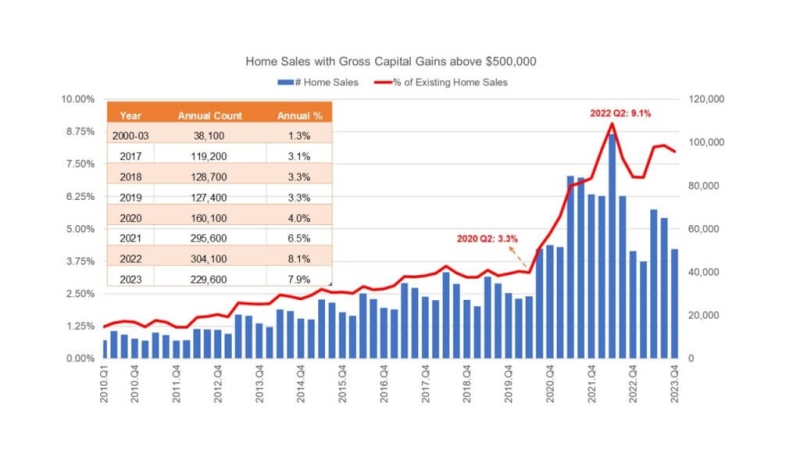
MBA Seeks Meeting With FHFA Over New GSE Pricing Framework

Sends letter to agency director raising concerns about changes, including LLPAs based on debt-to income ratios.
- MBA says the reasons for introducing DTI ratio into the enterprises’ pricing framework remain unclear.
- Says the DTI-ratio LLPA is 'unworkable and should be removed.'
The Mortgage Bankers Association (MBA) has again raised concerns about changes to the single-family pricing framework for Fannie Mae and Freddie Mac that were announced last month by the Federal Housing Finance Agency (FHFA).
In a letter to FHFA Director Sandra Thompson, MBA President Robert Broeksmit reiterated concerns about the announced changes to the government-sponsored enterprises’ (GSEs) loan-level price adjustments (LLPAs), and in particular the addition of an LLPA based on debt-to income ratios (DTI).
The MBA also requested a meeting with Thompson to further discuss the issue.
In the letter, Broeksmit states that the MBA appreciates the FHFA’s “recent efforts to implement a pricing framework that supports” the enterprises’ mission to “facilitate equitable and sustainable access to homeownership” while also strengthening the safety and soundness of the GSEs and improving their capital position.
He also states that the industry is still adjusting to two earlier changes to the pricing framework – increases to LLPAs for certain second homes and high-balance loans, and LLPA waivers for certain first-time homebuyers, Home Ready, and Home Possible loans, HFA Advantage and HFA Preferred loans, and single-family loans supporting the Duty to Serve program.
“Together, those changes significantly rebalanced the LLPA framework toward mission-focused lending,” Broeksmit said.
'Raise Costs For Borrowers'
While clearly supporting the earlier changes, the MBA letter takes issue with the changes announced in January, stating that they will “raise costs for borrowers in the heart of the GSEs’ “traditional market” and impose significant operational challenges for the industry.
“The timing of these changes is especially troubling given current stressed housing market conditions already making affordability a challenge, and the fast-approaching peak homebuying season,” the letter states. “MBA is particularly concerned about the addition of an LLPA for loans with a debt-to-income ratio (DTI) greater than 40%, and recommends removing it from the enterprises’ pricing framework.”
The letter states that the reasons for introducing DTI ratio into the enterprises’ pricing framework remain unclear.
“The general ‘Qualified Mortgage’ definition was revised to exclude DTI ratio, as studies demonstrate that as a standalone measure, DTI ratio is not a strong indicator of a borrower’s ability to repay,” the letter notes. “Further, an LLPA tied to DTI ratio poses a multitude of operational issues and subsequent quality control concerns for lenders.”
According to the MBA, a borrower’s income and expenses can change several times throughout the loan application and underwriting process, “especially considering evolving assumptions concerning the nature of debt and income, and the growth in self-employment, part-time employment, and ‘gig economy’ employment.”
The changes in income and expenses can cause the DTI ratio to fluctuate, the MBA continued, “as items of income and expense disclosed during the application process are later verified during underwriting, which could now result in multiple changes to a borrower’s loan pricing.”
Such pricing changes, the letter states, may result in “difficult compliance challenges” as lenders “are forced to evaluate whether such changes constitute a valid change in circumstance under TRID” – the TILA RESPA Integrated Disclosure rule, often referred to as the “know before you owe” rule – “potentially requiring redisclosures and delays in the closing process.”
In addition to those concerns, lenders also worry that multiple pricing changes could jeopardize borrower trust “and lead to the appearance of a ‘bait and switch’ when offering loan pricing,” the MBA said.
A DTI-based LLPA “will also create problems for post-closing quality-control activities,” the letter states. “Lenders are currently facing a rising number of repurchase requests from the GSEs, the majority of which are related to income calculations, according to data from the enterprises. The addition of a hard DTI pricing threshold could increase the frequency of ‘defects’ for minor calculation changes in the DTI ratio.”
The MBA said it believes the DTI-ratio LLPA is “unworkable and should be removed.”
Seeking A Meeting
At the time the latest changes were announced, FHFA Director Thompson said they would strengthen the “safety and soundness” of the GSEs by “enhancing their ability to improve their capital position over time.”
The latest announced pricing changes broadly impact purchase and rate-term refinance loans, and build on upfront fee changes previously announced by FHFA in January and October 2022; those changes have already been integrated into the new fee matrices.
The new fee matrices consist of three base grids by loan purpose for purchase, rate-term refinance, and cash-out refinance loans — recalibrated to new credit score and loan-to-value (LTV) ratio categories — along with associated loan attributes for each, the agency said.
The updated fees take effect for deliveries and acquisitions beginning May 1, 2023, to minimize the potential for market or pipeline disruption, FHFA said.
The MBA, however, states in its letter that it would like to “partner with the FHFA to convene a small group of lenders to full examine the difficulties of implementing a DTI-based LLPA.
“Based on feedback received thus far from a large percentage of our membership, there are many operational and compliance issues that would require extensive training, as well as updates to processes and technology systems,” Broeksmit states in the letter. “Working with industry participants will provide the opportunity to find alternative approaches to mitigating the enterprises’ exposure to high DTI ratios that do not pose hardships to both lenders and borrowers. MBA appreciates its ongoing partnership with FHFA and requests the opportunity to discuss this critical issue further at your earliest convenience.”
The FHFA declined to comment on the MBA's letter.




